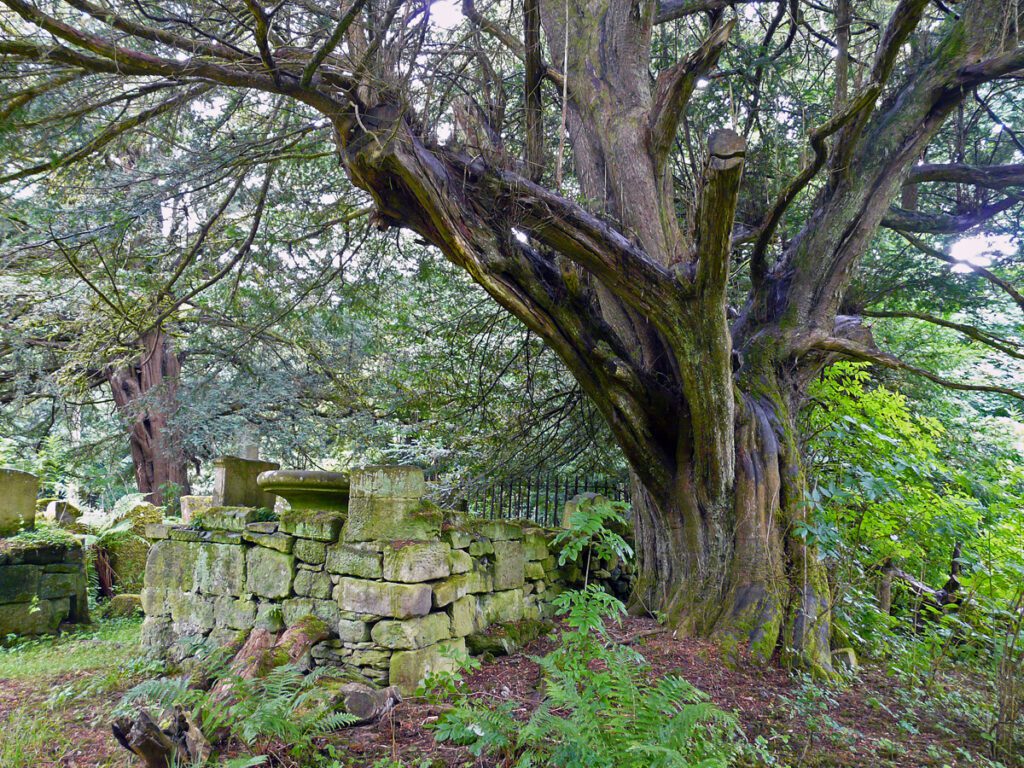Charubel was the pseudonym of the Welsh mystic, John Thomas (1826 – 1908). The poem comes from Charubel (1906) Psychology of Botany Minerals and Precious Stones, pp. 126-127.
The Churchyard Yew by Charubel
Revered reminder of ages long fled
Thy shade is sacred, beneath lie the dead
Those wrecks are the relics of mortality,
Their ashes now pay their tribute to thee.
Emblem of sadness! In thy ever dark-green
Trace reflections of life that has been
Life all dependent on what is most frail,
At night ’midst thy branches hear wail.
It is an echo the wave-crest the foam,
Life that is houseless, just driven from home.
In vision see thee ’mid wilds in the past,
Defiantly braving the rude winter blast.
Those winds blew o’er moor and o’er fen,
Places then free from the dwellings of men.
O’er those rude scenes the winds whistled wild,
It is thus how nature nurses her child.
How fragile so-ever the sapling may be,
’Tis doomed to shaking ere it grows to tree.
At present ’tis not so much that is seen
Of this sombre old tree, which stands between
The past and the present, the old and the new,
That I am concerned with and telling to you
But rather ’tis this the truth I’m revealing,
The Yew is healer, its powers of healing
Surpasses the body, it extends to the soul!
Poor and dejected, wilt thou be made whole
Why should you suffer such anguish of mind,
And ever be seeking for what you can’t find
Drugs and potations, all fail to control
Those greatest afflictions, those ills of the soul.
Turn thy sad soul to this grand old tree
Be earnest, be faithful, and thou shalt be free.

